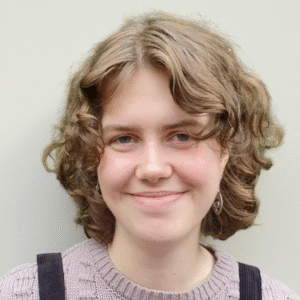
DAWN ERRIDGE
Piano Teacher
Dawn Erridge is a passionate and versatile piano teacher and composer with experience teaching students of all ages and abilities.
She studied music at King’s College, Cambridge, where she graduated with First Class Honours with Distinction, winning the Bertram Faulkner Prize for having made a “lasting contribution in the fields of musical scholarship, composition or criticism”. Whilst at Cambridge, she served as the accompanist to KWMG, a choir founded for women and people of marginalised genders. Dawn began her training at
the Birmingham Junior Conservatoire, studying piano under George Rowley and composition with Rob Jones and Kirsty Devaney, and is now pursuing a master’s degree in composition at the Royal Academy of Music, supported by the Vaughan Williams Foundation.
As a teacher, Dawn brings together strong classical foundations with a creative, student-centred approach. She enjoys working with students from diverse backgrounds both privately and in schools and has experience teaching students with a range of Special Educational Needs and Disabilities (SEND). As a relational teacher, she follows the interests, talents and needs of her students, whilst providing them with approaches and resources that best suit their individual needs. She endeavours to foster a supportive, relaxed and productive learning environment; one where students have space to ask
questions, learn independently and explore the piano as an instrument.
Alongside teaching, Dawn is a practising composer. Her music has been performed by the Riot Ensemble, London Contemporary Chamber Orchestra and King’s College Symphony Orchestra. Her music often explores processes of translation or mediation, combining different mediums into intimate self-portraits.
Dawn believes that learning to play an instrument is a truly holistic activity. She helps each of her students find their unique ‘way in’ to music, whether it’s through a love of performing, an affinity for patterns and mathematics, a desire to create, an enjoyment of the physical act of playing, or an interest in history and the arts. Equally, through the piano, she encourages her students to build on skills in areas in which they feel less comfortable: confidence and communication, analytical skills, creativity and imagination, coordination, historical understanding and art appreciation.
